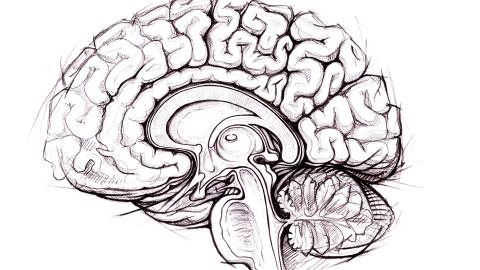Scientists Find a Source of Aging in the Brain

What’s the Latest Development?
Researchers have found a way to slow the aging process in mice by blocking a specific neural pathway found in the their brains’ hypothalamus. In the current study, scientists demonstrated that activating the NF-κB pathway in the hypothalamus of mice significantly accelerated the development of aging, as shown by various physiological, cognitive, and behavioral tests. “The mice showed a decrease in muscle strength and size, in skin thickness, and in their ability to learn—all indicators of aging. Activating this pathway promoted systemic aging that shortened the lifespan.”
What’s the Big Idea?
The same group of researchers found that blocking the NF-κB pathway in the hypothalamus of mouse brains slowed aging and increased median longevity by about 20 percent, compared to controls. Scientists have long asked whether aging is a consequence of many different organs degenerating or if the process is regulated by one specific organ. Dr. Dongsheng Cai, author of the study, said: “It’s clear from our study that many aspects of aging are controlled by the hypothalamus. What’s exciting is that it’s possible—at least in mice—to alter signaling within the hypothalamus to slow down the aging process and increase longevity.”
Photo credit: Shutterstock.com





